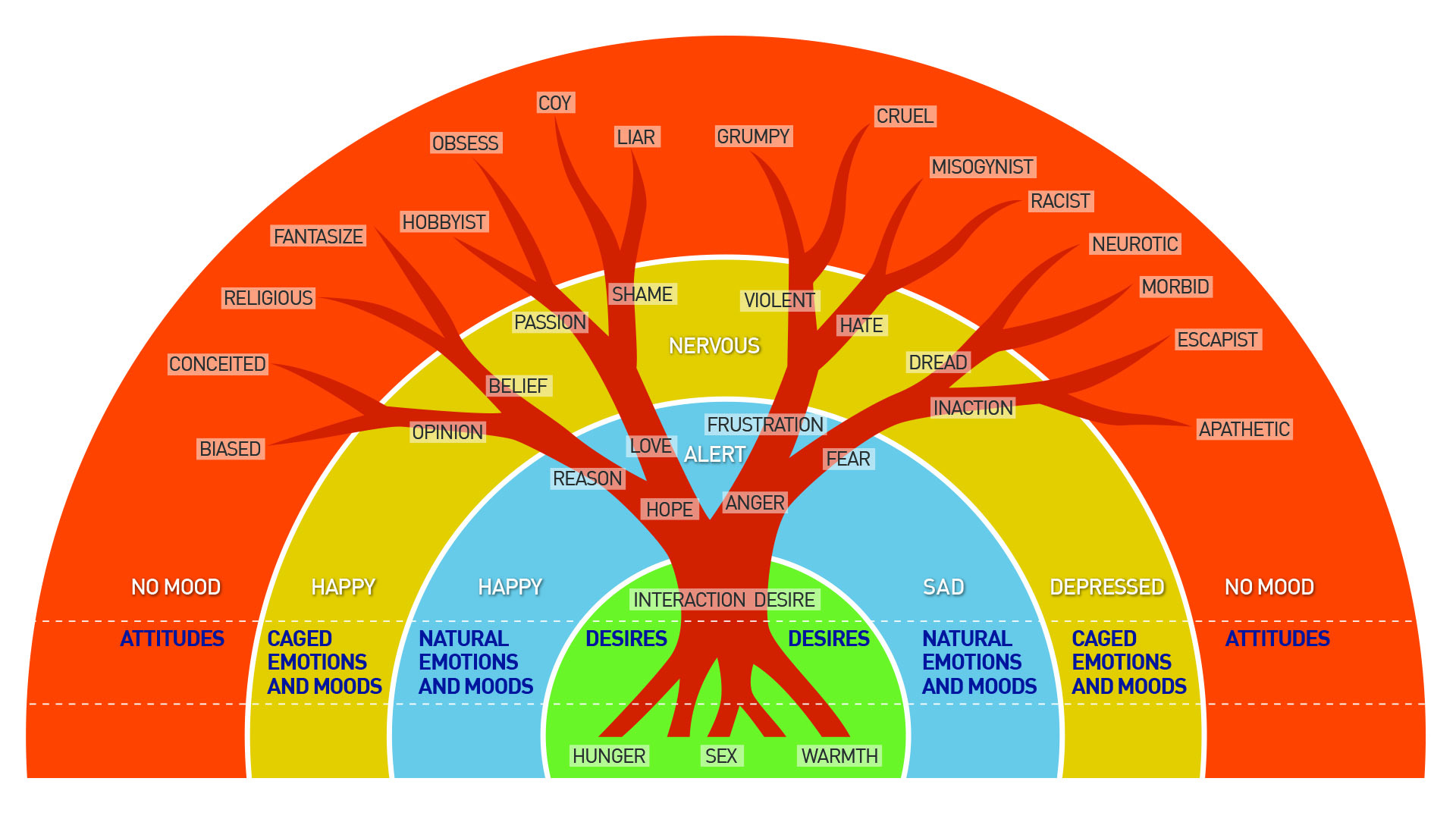Are you tired of making impulsive decisions that you later regret? Do you often find yourself torn between following your heart and using logical reasoning when faced with important choices? Welcome to the world of decision making, a complex and multifaceted process that shapes our lives. In the art of wise decision making, striking a delicate balance between emotion and reason can be the key to finding a path that leads to fulfillment and success. In this article, we will explore the significance of harmonizing the heart and the mind, empowering you to make informed and astute choices that truly align with your values and goals. Brace yourself for a journey into the world of transformative decision making, where emotion and reason seamlessly entwine to unlock your full potential.![]()
Balancing Emotion and Reason: The Key to Wise Decision Making
1. Understanding the Power of Emotion:
Emotions can be a double-edged sword when it comes to decision-making. On one hand, they can provide valuable insights and intuition that logic alone cannot offer. They can guide us towards what truly matters to us and help us align our decisions with our core values. However, when emotions run high, they can cloud our judgment and hinder rational thinking. It is essential to acknowledge the influence of emotions and learn to harness their power effectively in order to make wise decisions.
- Recognize and acknowledge your emotions: Take a moment to pause and identify the emotions you are experiencing. By acknowledging them, you can better understand their impact on your decision-making process.
- Reflect on past emotional experiences: Reflecting on similar situations in the past can provide valuable lessons and insights. Try to recall instances where your emotions may have either helped or hindered your ability to make sound decisions.
- Seek emotional balance: In order to make wise decisions, it is crucial to maintain emotional equilibrium. This can be achieved through self-care practices such as mindfulness, deep breathing, or engaging in hobbies that bring you joy and peace.
2. The Rational Side of Decision Making:
While emotions play a significant role, decision-making also requires logical reasoning. It is important to consider the facts, analyze the pros and cons, and evaluate the potential outcomes. Here are some strategies to help you engage your rational thinking:
- Research and gather information: Before making a decision, ensure you have all the relevant facts and data at your disposal. Conduct thorough research, seek advice from credible sources, and consider different perspectives.
- Break it down: Complex decisions can be overwhelming. Break them down into smaller, more manageable components. This allows you to focus on each aspect individually and make more informed choices.
- Consider the long-term impact: Wise decision-making requires thinking beyond immediate gratification and considering the long-term consequences. Ask yourself how the decision at hand aligns with your goals and values in the long run.
By striking a balance between emotion and reason, we can make well-rounded and thoughtful decisions. Remember, it is not about disregarding emotions or solely relying on cold logic, but rather integrating both aspects to achieve wise decision-making.

Understanding the Role of Emotion in Decision Making Process
Emotions are a fundamental aspect of the human experience and play a crucial role in our decision-making process. While some may argue that decisions should be solely based on logic and rationality, it is important to acknowledge that emotions can provide valuable insights and guidance.
1. Informed Intuition: Emotions can serve as a powerful source of intuition, providing a deeper understanding of the choices we make. They are an embodiment of our past experiences and can help us tap into our subconscious knowledge. By considering our emotions, we can access valuable information that might not be immediately apparent through logical reasoning alone.
2. Enhanced Evaluation: Incorporating emotions into our decision-making process can lead to a more thorough evaluation of options. Emotions can act as signals, indicating the potential impact of a decision on our well-being. They can guide us towards choices that align with our values and desires, contributing to a sense of fulfillment. By considering both our rational analysis and our emotional responses, we can make decisions that are more holistic and meaningful.
Harnessing Rational Thinking to Make Informed Choices
In a world filled with countless choices and endless streams of information, it has become more important than ever to rely on rational thinking to navigate through the complexity and make informed decisions. Rational thinking allows us to bring logic and reason into our choices, helping us avoid impulsive decisions driven by emotions or external influences. By incorporating rationality into our decision-making process, we can make well-grounded choices that align with our values and goals.
One of the key benefits of harnessing rational thinking is the ability to critically analyze information. With the prevalence of misinformation and biased narratives, it’s crucial to be able to discern fact from fiction. By applying rational thinking, we can evaluate sources, identify reliable information, and separate opinions from evidence. This empowers us to challenge assumptions, broaden our perspectives, and make decisions based on a solid foundation of knowledge.
- Enhanced problem-solving: Rational thinking promotes logical reasoning, enabling us to approach problems with a clear and systematic mindset. It encourages us to evaluate different possibilities, consider potential consequences, and explore innovative solutions.
- Reduced impulsivity: By utilizing rationality, we can resist the temptation of impulsive choices that might provide temporary satisfaction but have long-term negative consequences. Rational thinking allows us to reflect on our values and priorities, ensuring our decisions align with our long-term goals.
- Informed decision-making: Rational thinking equips us with the tools to gather, analyze, and interpret information accurately. By having access to reliable data and utilizing critical thinking skills, we can make informed choices that are based on evidence rather than mere speculation or personal bias.
Practical Strategies for Achieving a Harmonious Balance in Decision Making
In today’s fast-paced world, achieving a harmonious balance in decision making is often overlooked, yet it is crucial for personal and professional growth. To strike this delicate equilibrium, consider the following practical strategies, which can help you navigate the complexities of decision making with confidence and clarity. These strategies will empower you to make thoughtful, well-rounded choices that align with your values and goals, fostering harmony in all aspects of your life.
Cultivate self-awareness: Before making any decision, take the time to reflect on your own values, strengths, and weaknesses. Understand what truly matters to you and what you hope to achieve. This self-awareness will provide a solid foundation for your decision-making process, allowing you to assess each option through a lens of authenticity and personal growth. Remember, a harmonious balance can only be achieved when your decisions align with your true self.
Seek diverse perspectives: Decision making benefits greatly from a variety of viewpoints. Engage in meaningful conversations and actively seek out different perspectives, whether that be from colleagues, friends, or experts in the field. Embrace diversity and foster an inclusive environment that encourages open dialogue. By incorporating various opinions and insights, you can broaden your own understanding and make more informed decisions, ultimately leading to a harmonious balance between different viewpoints and perspectives.
The Way Forward
In today’s fast-paced and complex world, the ability to make wise decisions has become an essential skill. It is undeniable that our choices shape our lives, and the potential consequences can be far-reaching. Would you not want to empower yourself with the art of wise decision making?
The art of wise decision making lies in the delicate balance between emotion and reason. While our emotions help us connect with our inner desires and passions, reason provides us with the clarity and logic necessary for a rational judgment. By striking a harmonious equilibrium between these two forces, we can unlock a world of possibilities and navigate life’s challenges with confidence.
Emotions, undoubtedly, play a crucial role in decision making. They are the essence of our humanity, fueling our motivations and desires. They can guide us toward opportunities we might have otherwise overlooked. However, emotions can also cloud our judgment, leading us astray and causing regret. It is imperative, then, to master the art of tempering our emotions with reason.
Reason, on the other hand, acts as a guiding light that illuminates our path toward informed decision making. It allows us to assess the pros and cons, consider various perspectives, and evaluate risks and benefits. By embracing reason, we can hone our insights and avoid impulsive or irrational choices. Yet, relying solely on reason can lead to a life void of passion and fulfillment. It is by integrating our emotions that we can truly experience the richness and authenticity of our decisions.
The key to this art lies in finding the delicate balance between these two forces. Making wise decisions demands that we acknowledge our emotions, understand their origins, and harness their power. Simultaneously, we must impartially analyze the situation, assess all relevant factors, and weigh the possible outcomes. Only through this synergy can we make choices that align with our values and aspirations.
Developing the art of wise decision making involves practice, self-awareness, and a willingness to embrace uncertainty. It is through embracing our emotions without letting them dominate our rationality, and by employing reason without losing touch with our deep desires, that we can truly unleash our potential.
In conclusion, the art of wise decision making empowers us to navigate life’s crossroads with prudence, confidence, and integrity. By harnessing both the power of emotion and the light of reason, we can craft a life filled with purpose, fulfillment, and authenticity. So, let us embark on this journey together, honing our skills, and embracing the infinite possibilities that lie in the art of balancing emotion and reason in our choices.
An effective decision-making process is essential for achieving success in life. The ability to balance one’s emotion and reasons when making a choice is a difficult but valuable skill. The practice of employing both emotion and reason when making decisions is often referred to as the ‘art of wise decision making.’
The process of decision making is often difficult due to the emotional nature of the decisions. It is easy to become attached to an idea or situation, and as a result, one may overlook important details that could lead to a better decision. For example, when trying to choose between two different job offers, an individual may become overly focused on one because it is more emotionally appealing. However, if the individual were to take into consideration the pay, benefits, and job requirements of each, a more informed decision could be made.
It is also important to recognize the importance of reason when making decisions. Reason allows us to think through a situation objectively, considering the facts and consequences of the possible outcomes. Taking into account factors such as the long-term effects of a decision and the potential risks and rewards helps us to make a more informed decision.
The art of wise decision making is the process of engaging both the logical and emotional sides of ourselves when making choices. When properly employed, reason and emotion can work together to create an informed decision based on both pragmatic and subjective considerations. To achieve this, it is important to consider the facts and potential consequences of any possible choices without letting our emotions cloud our judgement.
Learning to properly balance emotion and reason when making decisions is an important part of life. It is a skill that is critical to good decision-making and can be applied to any situation. Individuals who are able to assess a situation and make a decision based on both emotional and logical factors are better equipped to make wise choices. By applying the ‘art of wise decision making’, one can make sound decisions based on both emotion and reason.

